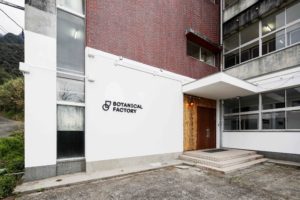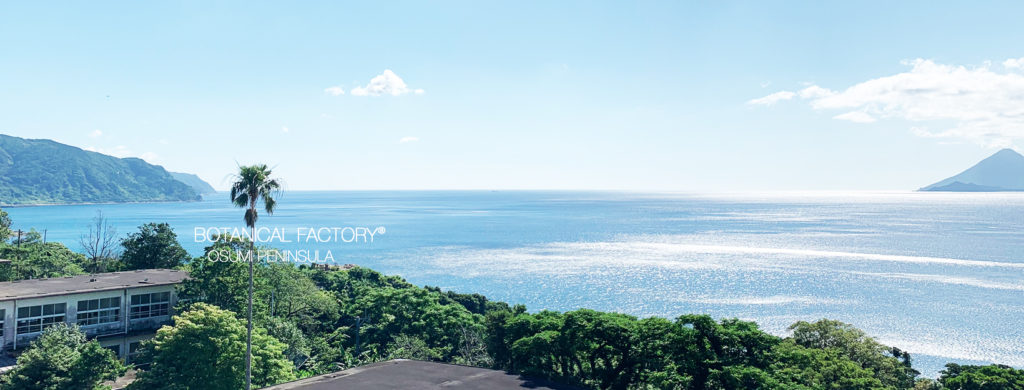 BOTANICAL FACTORY- Osumi Peninsula
BOTANICAL FACTORY- Osumi Peninsula
【私たちの工場について】
本島最南端の大隅半島にある鹿児島県肝属郡(きもつきぐん)南大隅町は、亜熱帯気候と温帯気候が混在し、約4000種もの多様な植物が群生し、「佐多岬」や「雄川の滝」の観光名所で有名な風光明媚なところです。
原生林の山々を背に、眼下には錦江湾の夕日が沈むロケーションで、時よりふと聞こえる鳥や森の動物達の鳴き声が心地よく聴こえる環境でモノづくりをしています。
私たちは、その南大隅町にある、旧「登尾小学校」の一部を製造工場としてリノベーションし、ハーブウォーター(蒸留水)やアロマオイル、植物エキスの抽出など、原料づくりから製品までを一貫生産しております。
お肌にも、環境にもやさしい「サスティナブルコスメの追求」が商品づくりの基本です。
「食の宝庫」の鹿児島の資源を最大限に活かすべく、農家や自治体と協力しながら「地産化粧品」「食べ物のような化粧品」という切り口で、「天然由来成分100%、アルコール、ケミカルフリー」のスキンケア商品の製造を通じて「地方創生」に寄与できることを目指しております。

【化粧品づくりの基本理念】
コンセプトは「天然由来成分100%でアルコール、ケミカルフリー」 下記の考えを基本理念としています。
◉ 「口に入れるものとお肌から取り入れるものは、原則として同様の原料でなければならない」という基本的な考え方から、可能な限り食品にも使用される原料で、経皮吸収されたものが体に影響の出ないスキンケア化粧品を作ることを第一義的な目的とします。
◉ 「合成界面活性剤を使用しない」事と「アルコール不使用」を基本処方とし、「お肌の角質を柔らかく導き、自分本來のお肌を、自分の力で取り戻す」ことを全てのスキンケア商品の共通のテーマとしております。
◉ 全商品で可能な限り「水」を使用せず「ハーブウォーター(蒸留水)」を使用しています。
◉ 固形石鹸はコールドプロセス製法、液体石鹸はカリ石けん素地づくりから全て自社製造にこだわります。
◉ 全商品に可能な限り「地産原料(鹿児島県産農薬不使用の原料)」を使用し、独自抽出の自社原料の積極的な使用にこだわる。それが「耕作放棄地対策」に寄与できると考えます。
◉ 廃棄処分されていた無農薬の規格外農作物(タンカン、パッションフルーツ、辺塚ダイダイ等)を積極的に買取りする活動などを通じて近隣農家と助け合いながら、「持続可能な取り組み」を行うことで化粧品製造を通じて「地域社会や自然環境に対して永続的に貢献できる取り組み」を行います。
◉ 限りある資源の再活用として「小学校跡地活用」さらに「隣接する中学校跡地の活用」を行うことで、限られた地域資産を活用し、地方創生に寄与できる活動を行うことを目的としています。
【使用原料に関する基本的な考え方】
◉ 工場では合成界面活性剤、防腐剤、合成香料、合成着色料、アルコール、石油由来成分、動物由来原料は、一切使用しておりません。委託製造をご希望の際はご相談下さい。(*一部商品はハーブの抽出溶媒にバイオ発酵エタノールを使用しています)
◉ 一部原料(可溶化目的)としてBG(サトウキビ発酵液由来)を使用します。
◉ 植物エキス抽出溶媒はバイオ発酵エタノール(サトウキビ由来)を使用。
◉ 柑橘系エキス及びアロマオイルは全てフロクマリン等の光毒性を除去したものを使用しております。
◉ ナノ化された原料は使用しません。

| 1.【廃校になった小学校と中学校を化粧品工場に再活用】 |
|
|
|
過疎化が進む南大隅町で、2016年廃校になった小学校をリノベーションして化粧品工場(第一工場)とし、化粧品原料の抽出から製品化までを校舎内で一貫生産。2021年から隣接する中学校(廃校)も同様に活用し専用のスキンケアラインを増設。 また、校舎内のショールームでは、地産原料を用いて工場内で抽出したハーブ蒸留水やアロマオイルを使ったワークショップコーナーを常設し、ターゲット8.(9)にある「雇用創出、地方の文化振興・産品販促につながる持続可能な観光業を促進」する取組を行っております。 |
| 2.【地産原料へのこだわり。契約農園と近隣農家との連携】 |
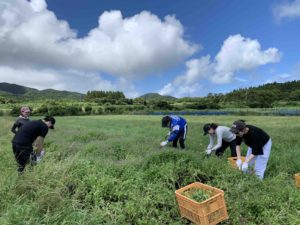 |
| 農業従事者の高齢化に伴い『耕作放棄地』の対策が急がれる中、亜熱帯の植生にマッチした「ハーブ」の作付けを7年前より開始。現在では2件の契約農家に「ホーリーバジル」「月桃」「レモングラス」を契約栽培し耕作地の劣化を防ぐ活動を行い、特産品の「タンカン」「パッションフルーツ」「シラヌヒ(デコポン)」は町内の8軒の農家と契約し、毎年収穫時期に採取される規格外品を購入するなど近隣農家と連携した原料確保を行っています。 契約栽培されたハーブを活用し、自社で水蒸気蒸留した後、その蒸留水を「化粧水」「乳液、クリーム」「シャンプー、リンス」のベースウォーターとして使用。その他、近隣の製茶工場で「ホーリーバジル」「レモングラス」を乾燥加工してもらいそれぞれの特徴を活かした「ハーブティー」の商品化をしています。 ◯https://botanical.co.jp/ingredients/ ◯(商品例:化粧水)https://botanicanon.com/holybasil-skinlotion/ ◯(商品例:ハーブティー)https://botanicanon.com/holybasil_tealeaf/ |
| 3.【農業廃棄物の削減とアップサイクル商品の周知活動】 |
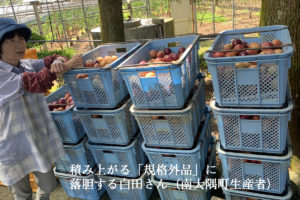 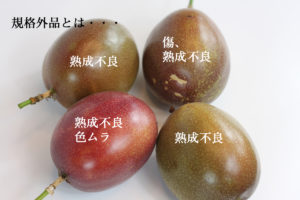 |
| 毎年、近隣農家より規格外農作物の買取りを行い、農業廃棄物の削減に取り組んでいます。現在、廃棄農産物の買取り実績として、いずれも町内特産品の「パッションフルーツ」「パイナップル」「タンカン」「シラヌヒ」「辺塚だいだい®」の5種類です。出荷前に未完熟のまま落下した果実や、キズ、実付きが小ぶりなどの理由によって出荷できなかったものや、出荷後に、シワ、色ムラでJAより返品されたのもを中心に買い取りを実施。「辺塚だいだい®」は、近隣の加工所で毎年15t以上の果皮が廃棄されることから2021年よりこの果皮を買い取る試みもはじめました。 これら廃棄農産物を自社工場内で、①蒸留水 ②アロマオイル抽出 ③エキス抽出 の3つの原料として再利用され、それらを化粧品原料として活用しています。 このようにアップサイクルされた商品の販売促進と活動の周知を目的として、2021年度はクラウドファンディングを活用し、廃棄原料の調達資金の確保とアップサイクル商品の周知活動を2回行いました。 ◎第1回CF「タンカン農業廃棄物買い取りプロジェクト」https://botanical.co.jp/2021/03/03/tankan-cf/ ◎第2下位CF「パッションフルーツ農産規格外品からコスメに」 https://botanical.co.jp/2021/06/10/passion-cf/ |
| 4.【石けんメーカーとしての使命、海を守る取組みについて】 |
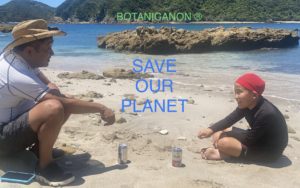 |
|
私達は設立当初より「コールドプロセス製法の石けん」製造を行っています。その中で独自のカリ石けん素地づくりにおいては、地元桜島産ツバキ油を用いた植物油脂を厳選して作られます。 *自社食器洗い洗剤の生分解性テスト結果 |
| 5.【超高齢化地域における雇用確保の取組について 】 |
 |
| 私達の工場(会社)は、鹿児島県大隅半島の最南端に位置し、人工約6,700人の中で65歳以上が50%と超高齢化自治体にあたります。 精密な生産を要求される化粧品製造において、勤務できる条件に当てはまる年齢のスタッフはほとんどが子育て世代に当たり、フルタイム従事できるスタッフがほとんどいません。そのため年齢や性別を問わず、多様な人材が活躍できる環境づくりを推進するために、事業所内のベビーベッドの設置や、パートへの有給休暇の積極的取得を奨励することで従業員の確保に努めております。 また、女性リーダー(パート)の積極登用や、農業廃棄物の皮むきなどの前処理作業などにはアクティブシニアの再雇用を積極的に行い、すべての従業員が働きやすい環境づくりに努めています。 |
| 6.【脱プラへの取組と新工場(第二工場)の動力を電気でクリーンに】 |
 |
|
2021年11月に稼働予定の中学校跡地をリノベーションした第二工場では、動力、熱源の全てを電気を使用することで二酸化炭素の排出を抑制することにしました。 さらに、新商品について今後は可能な限りプラスティックの使用を「バイオマスプラスチック100%」を使用したものに切り替えて行きます。 バイオマスプラ容器使用2品 |
Company Philosophy
◯人のお肌が健やかになる「地産化粧品」づくりを通じて僻地に産業を興します。
◯全従業員及び地域関係者、農業従事者の物質的な利益と心の豊かさを追求し、永続的な発展と環境保全に寄与できる企業を目指します。
About our plant
Minami-Osumi Town, located in Kimotsuki County, Kagoshima Prefecture, on the Osumi Peninsula at the southernmost tip of the main island, is a scenic place with a mixture of subtropical and temperate climates, a variety of plants of about 4,000 species, and famous tourist attractions such as “Cape Sata” and “Ogawa Falls.
With the mountains of virgin forest in the background and the setting sun of Kinko Bay below, we are manufacturing products in an environment where we can comfortably hear the birds and animals in the forest from time to time.
We have renovated a part of the former Noborio Elementary School in Minami-Osumi Town as our manufacturing plant, and we are engaged in integrated production from raw materials to finished products, such as herb water (distilled water), aroma oil, and plant extracts.
The basis of our product manufacturing is “pursuit of sustainable cosmetics” that are gentle to the skin and the environment.
We aim to contribute to “regional development” through the production of skincare products with 100% natural ingredients, alcohol-free and chemical-free, in cooperation with farmers and local governments to make the most of the resources of Kagoshima, a “treasure house of food.
Basic Philosophy of Cosmetics Manufacturing
Our concept is “100% natural ingredients, alcohol-free and chemical-free”.
Our primary goal is to create skin care cosmetics that are made from ingredients that are used in food as much as possible and that are not harmful to the body when absorbed percutaneously.
◉ The common theme of all our skin care products is to soften the skin’s keratin and restore the skin to its natural state by using no synthetic surfactants and no alcohol.
◉ We use distilled herbal water in all of our products to avoid the use of water whenever possible.
◉ We use a cold process for our solid soaps and a potash soap base for our liquid soaps.
◉ We use “locally produced ingredients” (pesticide-free ingredients from Kagoshima prefecture) in all our products whenever possible, and insist on the active use of our own ingredients of our own extraction. We believe that this will contribute to the “prevention of abandoned farmland”.
◉ We will help neighboring farmers through activities such as actively purchasing pesticide-free substandard agricultural products (such as tangerines, passion fruit, and Henzuka dai-dai) that had been disposed of, and through “sustainable efforts” we will “make a lasting contribution to local communities and the natural environment” through the production of cosmetics. We are committed to making a lasting contribution to local communities and the natural environment through the production of cosmetics.
We aim to contribute to the creation of local communities by utilizing limited local assets through the “utilization of the former site of an elementary school” and “utilization of the site of an adjacent junior high school” as a way to reuse limited resources.
Basic Concepts Regarding Raw Materials Used
◉ We do not use any synthetic surfactants, preservatives, synthetic fragrances, synthetic colors, alcohol, petroleum-derived ingredients, or animal-derived ingredients. Please contact us if you wish to outsource manufacturing. (*Some products use bio-fermented ethanol as a solvent for herbal extraction)
◉ BG (derived from fermented sugarcane) is used as a partial raw material (for solubilization).
◉ Bio-fermented ethanol (derived from sugarcane) is used as a solvent for the extraction of plant extracts.
All citrus extracts and aromatic oils are free from phototoxic substances such as furocoumarin.
◉ No nano-derived raw materials are used.
1. [Reuse of closed elementary and junior high schools as cosmetics factories].
In Minamiosumi-cho, a depopulated town in Japan, a closed elementary school was renovated in 2016 and turned into a cosmetics factory (Factory 1), where cosmetic ingredients are extracted and commercialized in an integrated production process. In the showroom inside the school building, a workshop corner using herb distilled water and aroma oil extracted in the factory using locally produced raw materials is permanently set up to “promote sustainable tourism that leads to job creation, local culture promotion, and product sales promotion” as stated in Target 8(9).
Company website: https://botanical.co.jp
About the workshop
2.[Commitment to locally produced ingredients. Collaboration with contract farms and neighboring farmers
Amidst the urgent need to address abandoned farmland due to the aging of farmers, we began planting herbs that match the subtropical vegetation seven years ago. Currently, the company has contracted with two farmers to cultivate “holy basil,” “shell ginger,” and “lemongrass” to prevent the deterioration of cultivated land, and has contracted with eight farmers in the town to purchase off-spec product (dankan, passion fruit, and shiranuhi (dekopon)) from nearby farmers. We secure raw materials in cooperation with neighboring farmers. The herbs grown under contract are steam-distilled in-house, and the distilled water is used as base water for lotion, milky lotion, cream, shampoo, and conditioner. In addition, we have a nearby tea factory dry and process “holy basil” and “lemongrass” to produce “herb tea” that makes the most of the characteristics of each herb. ◯https://botanical.co.jp/ingredients/
Fat (product example: lotion) https://botanicanon.com/holybasil-skinlotion/
Fat (product example: herb tea) https://botanicanon.com/holybasil_tealeaf/
3. [Activities to reduce agricultural waste and promote awareness of upcycled products] Every year, we receive off-specification products from neighboring farmers.
Every year, the company purchases out-of-spec agricultural products from neighboring farmers to reduce agricultural waste. Currently, we have purchased five types of waste agricultural products: passion fruit, pineapple, tangerine, shiranuhi, and Henzuka dai dai dai®, all of which are local products of the town. The JA purchased mainly fruits that fell unripe before shipment, or could not be shipped due to flaws or small fruit size, as well as fruits that were returned by JA after shipment due to wrinkles or uneven color. In 2021, we also began purchasing the peels of HENZUKA DAIDAI® fruit from a nearby processing plant, which wastes more than 15 tons of peels every year. These discarded agricultural products are reused in the company’s own plant as raw materials for (1) distilled water, (2) aroma oil extraction, and (3) extraction of extracts, which are then used as raw materials for cosmetics. In order to promote sales of these upcycled products and publicize our activities, we utilized crowdfunding in FY2021 to secure funds for procurement of waste materials and publicize our upcycled products twice.
◎First CF “Tankan Agricultural Waste Buyback Project” https://botanical.co.jp/2021/03/03/tankan-cf/
◎2nd CF “From Passion Fruit Agricultural Off-specification Products to Cosmetics” https://botanical.co.jp/2021/06/10/passion-cf/
4.[About our mission as a soap manufacturer and our efforts to protect the ocean
We have been manufacturing “cold process soap” since our establishment. Our original potash soap base is made from carefully selected vegetable oils and fats using local camellia oil from Sakurajima.
By manufacturing and selling this highly biodegradable “liquid soap” and using liquid soap to clean our own factories, we are working to prevent wastewater pollution to the nearby ocean. (98% decomposition after 5 days *see website data) We also sell liquid soap by weight at local retail stores and factories, and conduct educational activities through workshops with tourists and students.
Since 2020, we have been conducting workshops at Marine Park Tarumizu (https://marinepark-tarumizu.com/) as part of the school excursion menu for elementary school students in the prefecture to experience making liquid soap using locally produced aromatherapy and to raise awareness about the use of soap without petroleum-based synthetic surfactants, which cause marine pollution. The workshop is designed to educate the public about the use of soap that does not contain petroleum-derived synthetic surfactants that cause ocean pollution.
Botanicanon uses a similar base material, potash soap base, in its shampoo, body soap, and dishwashing detergent.
Biodegradability test results of Botanicanon’s dishwashing detergent
5. [Efforts to secure employment in super-aging society
Our factory (company) is located at the southernmost tip of the Osumi Peninsula in Kagoshima Prefecture, which has a population of approximately 6,700 people, 50% of whom are 65 years old or older.
In cosmetics manufacturing, which requires precision production, most of the staff who are eligible to work are of child-rearing age, and there are few staff who can work full time. Therefore, in order to promote the creation of an environment in which a diverse workforce, regardless of age or gender, can play an active role, we are working to secure employees by installing baby cribs in our offices and actively encouraging part-time workers to take paid leave.
In addition, we actively promote female leaders (part-timers) and actively rehire active seniors for pre-processing work such as peeling of agricultural waste to create a comfortable working environment for all employees.
6. [Efforts to De-plasticize and Power the New Plant (Plant No. 2) with Clean Electricity].
At our second factory, which was renovated from the site of a former junior high school and is scheduled to start operation in November 2021, we have decided to curb carbon dioxide emissions by using electricity for all power and heat sources. In addition, we will switch to the use of “100% biomass plastic” for new products whenever possible.
Two products using biomass plastic containers
https://botanicanon.com/p6326/
Company Philosophy
We will revitalize industry in remote areas through the production of “locally produced cosmetics” that help people’s skin to be healthy.
We aim to be a company that contributes to sustainable development and environmental conservation by pursuing material benefits and spiritual enrichment for all employees, local residents, and farmers.

